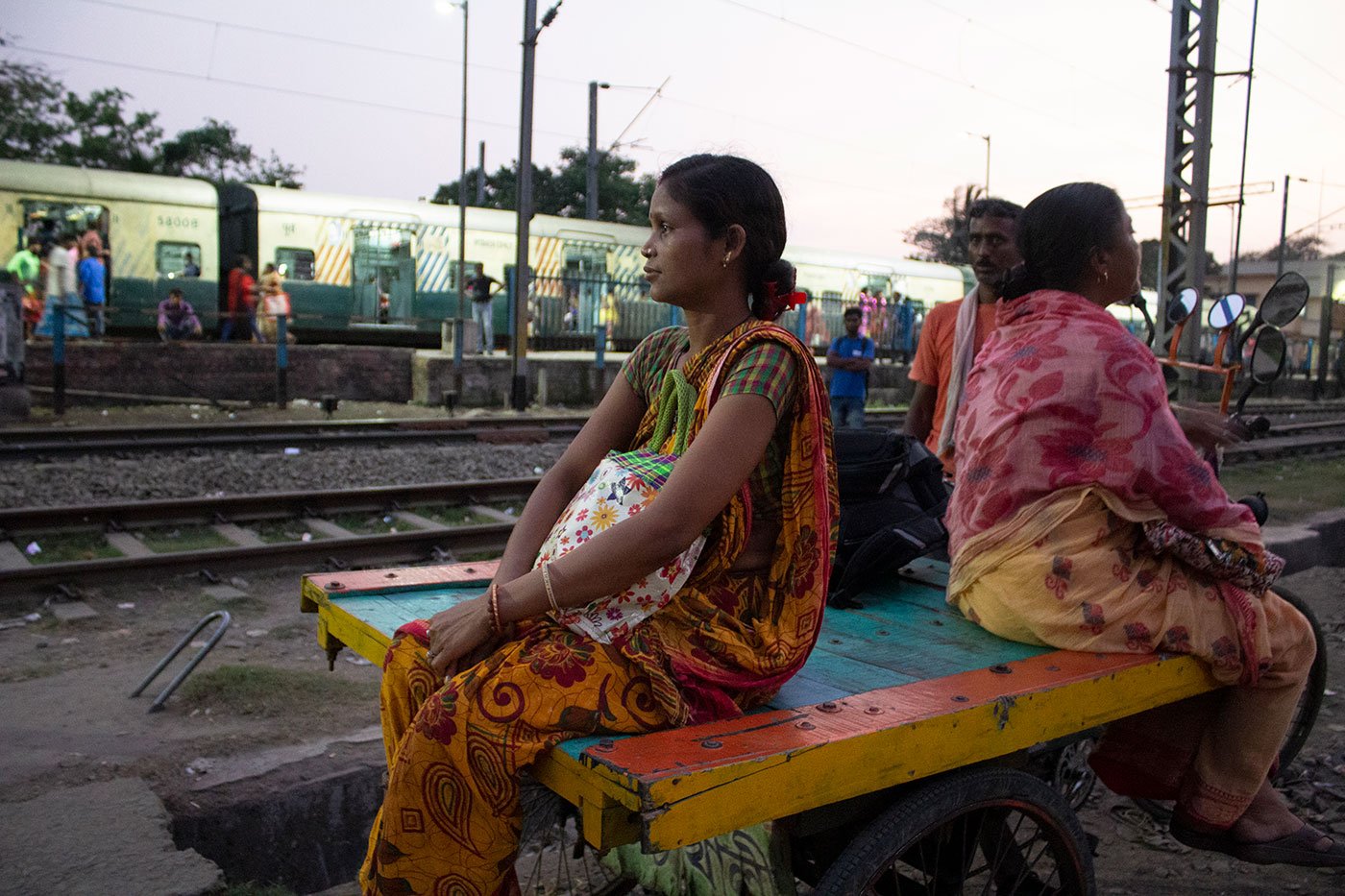

By Anukriti Roy
First publised on 2021-06-23 06:42:01
The rural hinterland of any city or town is as dependent on the urban conglomeration for livelihood and income as the city is dependent on it for sourcing fruits, vegetables, milk, eggs and house help, among other things. The pandemic and the resultant lockdown has meant that while there is no restriction on the movement of fruits, milk, eggs and vegetables, the closure of public transport and suburban trains has made it almost impossible for house helps, almost entirely the womenfolk of nearby villages, to go to their work places in the city.
This correspondent visited a few villages in the Baruipur area of Kolkata, about 35 kilometres from the city to find out how the rural economy is struggling to come to terms with the lockdown with a focus on the way these womenfolk are not able to earn their living. Most of them get up as early as 4 am and catch the first suburban train out of Baruipur station to reach the Ballygunge station ( or many other stations) in Kolkata by 5.30 am and then walk it down to their respective work places by 6 am.
They reach this early as they work at 4 to 5 places in a day, at an average of two hours at each place, washing utensils, cooking meals, washing clothes and cleaning the house. They take a train back at 3pm to be back at their village by 4.30 pm. They get tea and tiffin at one household in the morning and lunch at another household. Their average pay per household is between Rs 2000 and Rs 3000 per month depending on the workload. In some houses, if they do full cooking, they charge up to Rs 5000. This means that on an average, each of these women are losing upwards of Rs 10000 per month due to the pandemic-related disruption.
This correspondent spoke to Reena Mondal, a woman who lives about 10 kilometres from Baruipur railway station. She said she used to work in four houses near Gariahat and used to earn Rs 12000 per month. But since the lockdown in March 2020, she has lost two of her houses to others. In addition, most housing complexes are not allowing helps who come from outside. She said she was offered a full time job at one of the houses for Rs 15000 per month and she took it up but had to leave after a month as her family (husband and two children aged 12 and 11) could not manage without her. The story was the same for a few other women covered for this story.
The rural economy has been battered and the households have to make do with the meager earnings they can manage by growing vegetables on the small pieces of land they have. They are also being helped by the government which is providing free ration to them. But the sudden withdrawal of Rs 10000-Rs 12000 per month as income brought in by the women has reduced them to penury. They are waiting for the restrictions to go away ("kobe je thik hobe"- when will things return to normal, is the common wail in these parts) so that they can earn as before and live a comfortable life.











